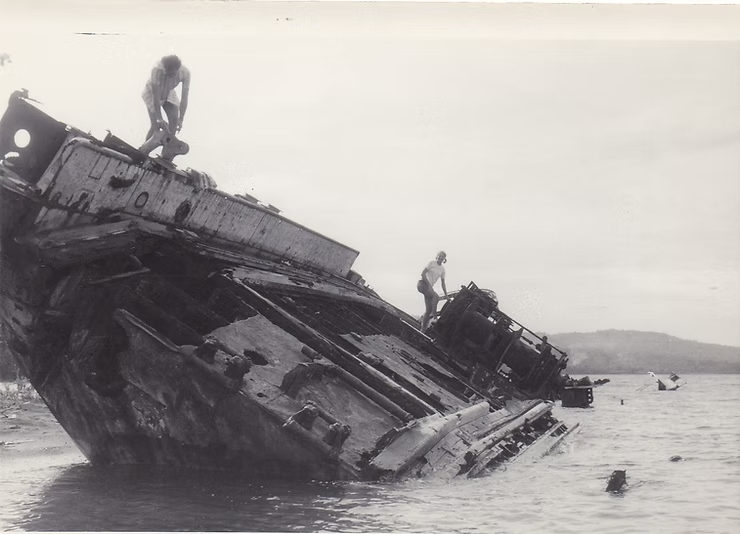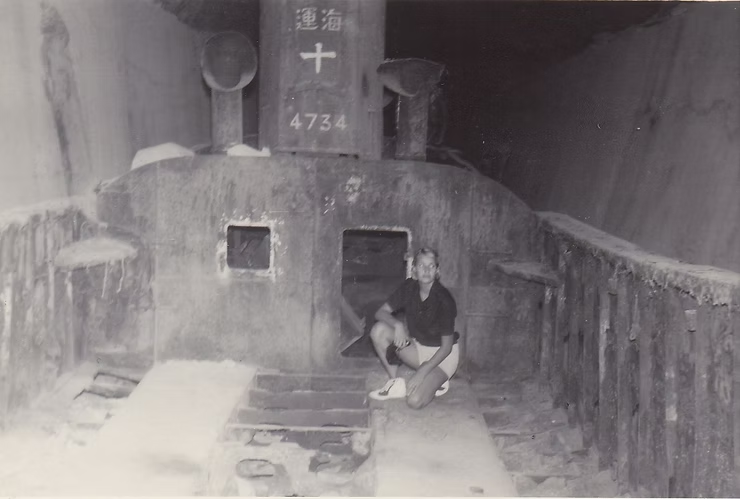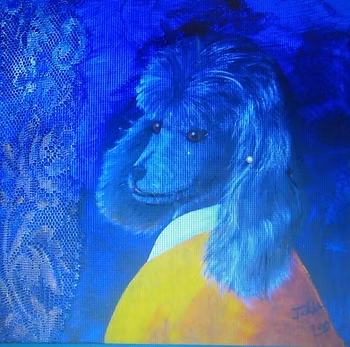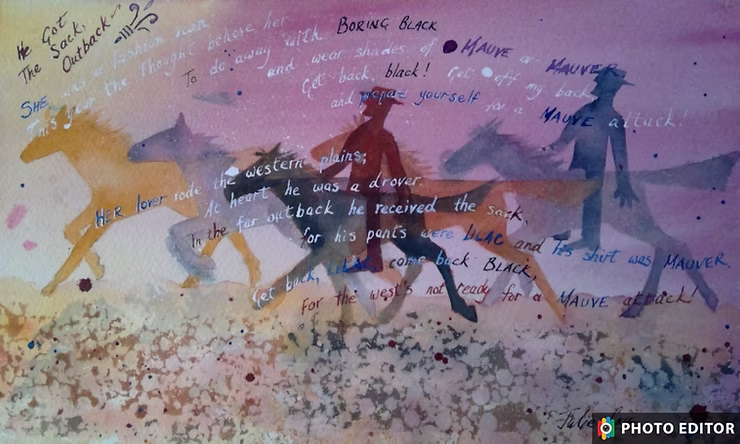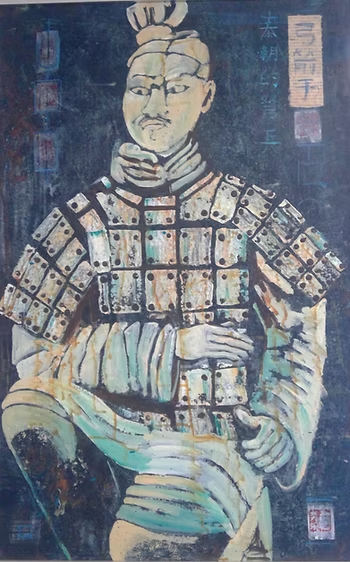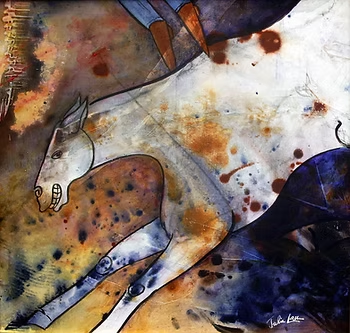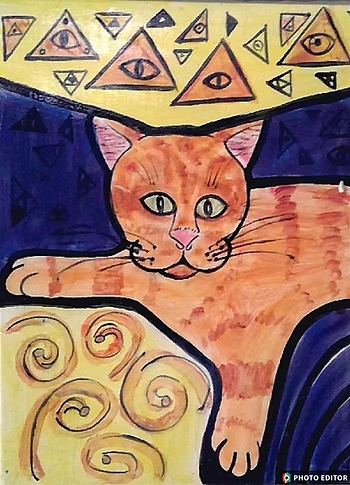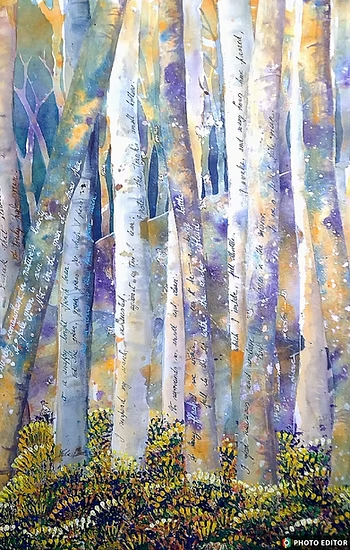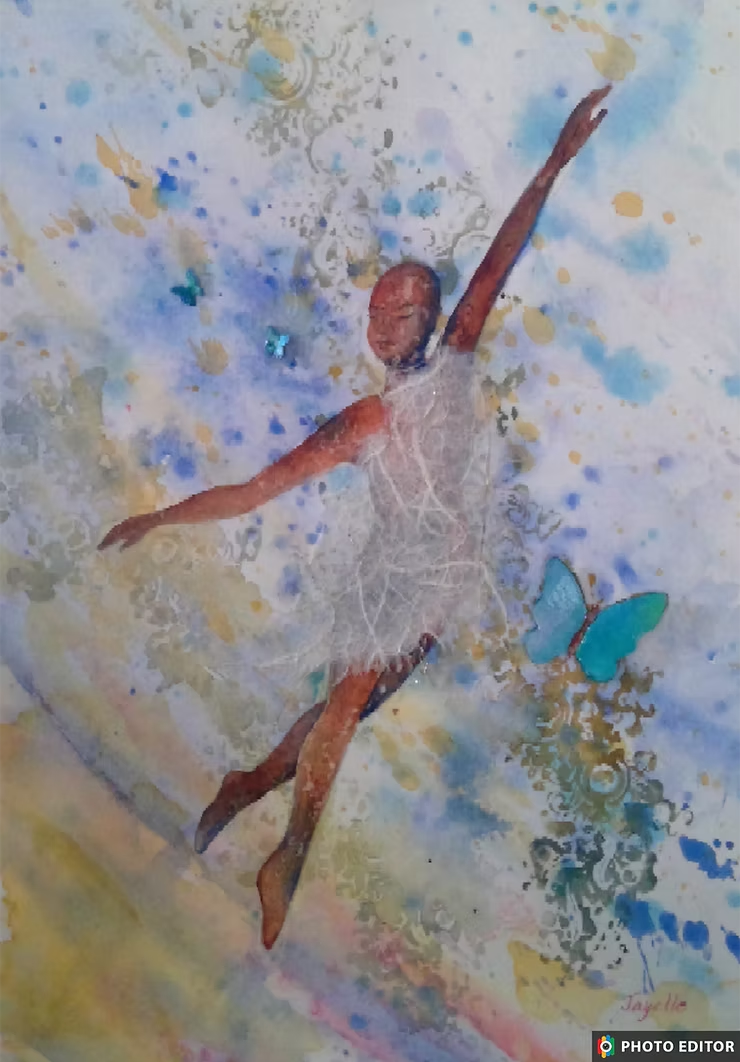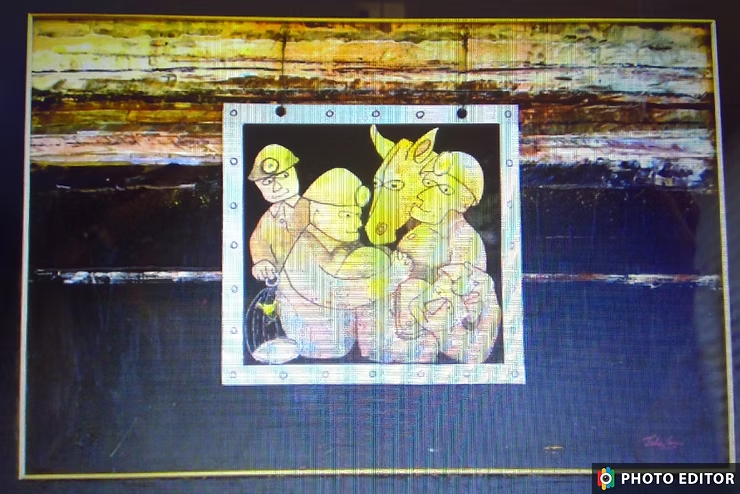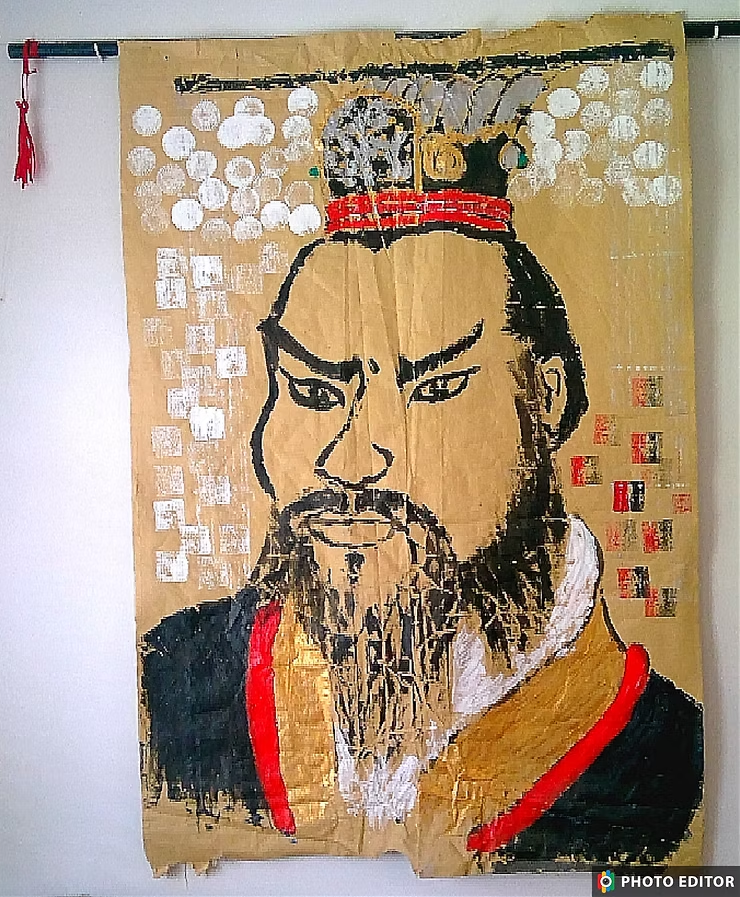AUTUMN is one of a series of four I painted in acrylic on metre-high canvases to illustrate the way in which the seasons are traditionally depicted in China: autumn by the chrysanthemum, spring by plum blossom, etc. Because these were painted for an exhibition commemorating Emperor Qin’s terracotta army, there is the addition of a hidden clay figure in each. Your job today is to find the figure in Autumn.
~oOo~
Another dirty little ditty, this one inspired by a particularly hilarious episode of Kath and Kim.
Love at a Quickened Pace
and I know that I’m overweight and spotty,
but I’m hoping that this incident means a lot; he
had me in a Port-a-loo.
the tilt of his kilt was growing gigantic,
and the sole private place to consummate our antic
was that empty, beckoning Port-a-loo.
all portable structures to leave no traces:
we rivalled the horses as we went our paces,
and tipped over the Port-a-loo.
loved me or not; but oh, as we fell, he
asked me my name; I said it was Kelly
and it’s scrawled on the wall of the Port-a-loo.
THE UNLIKELY ONE - part 2
RABAUL HARBOUR became an extremely busy place. The rich volcanic nature of the soil gave it a fertility like no other. Hundreds of skilled farmers were imported from Japan, and soon they were supplying food for the entire chain of captured islands which stretched back as far as their homeland. Two hundred Japanese ladies of easy virtue were imported to keep the farmers and soldiers company.
Allied planes visited each day with extraordinary vigilance and soon Rabaul township was reduced to rubble. They also attacked any Japanese shipping, usually with satisfactory results.
Ingenious solutions overcame the problem of transporting vegetables around the islands. All transportation occurred under cover of darkness, in a number of compact iron vessels which were stored end-to-end in a shoreward-facing tunnel by day. At night, fully laden, they slid in turn down a pair of rails to an easy launch in rapidly-deepening water off the side of the caldera, and commenced their journeys.
The waters around the harbour were busy with flotillas of cargo ships and battleships. A longish walk away, a cliff which dropped sheer into the sea had been penetrated by a number of tunnels at sea level to harbour small submarines.
Most of the Chinese were kept busy gardening and fishing for their sustenance, but the grinning, shuffling Chin Hoi Min seemed to be excused from these labours, or perhaps was more of a hinderance than a help; merely wandering around and sometimes disappearing into the jungle to return hours later in the same vaguely cheerful way. The invaders laughed at his jovial greetings and left him free to wander where he would.
Although Chin took various different paths, his destination was always the same. With surprising dexterity and leaving no traces, he sidled through thick undergrowth while performing a complicated whistle. Hearing a similar whistle in return he would make his way down into a cliff-edge cave, where a hidden Australian, one of a few brave men with local knowledge, would keep an eye on Japanese movements and report back to headquarters by radio.
There would be a conversation something like this:
‘Hello, Ah Hoi, how are you today?’
‘Fine thanks Dave. Would you like some spring rolls?’
‘I certainly would! Please thank your mother. Anything exciting been happening?’
‘The Japanese doctor amputated Jackson Seeto’s infected leg yesterday. I got to hold the lantern.’
‘Oh, the poor fellow! At least he has a good chance of recovery now. Anything else?’
‘Four enemy battleships sticking to deep shadow sou-sou-west of the floating crane wreck.
‘A general has appeared in camp. Must be off one of them.
‘They’re starting to clear a big new garden north of the last one. It would be easy to delay them by sending a few planes over.’
‘Thank you, Hoi. We can certainly use all that. Have a cup of tea and a rest, and then you’d better shuffle your way home again, ha ha!’
-to be concluded in Blog #19-
